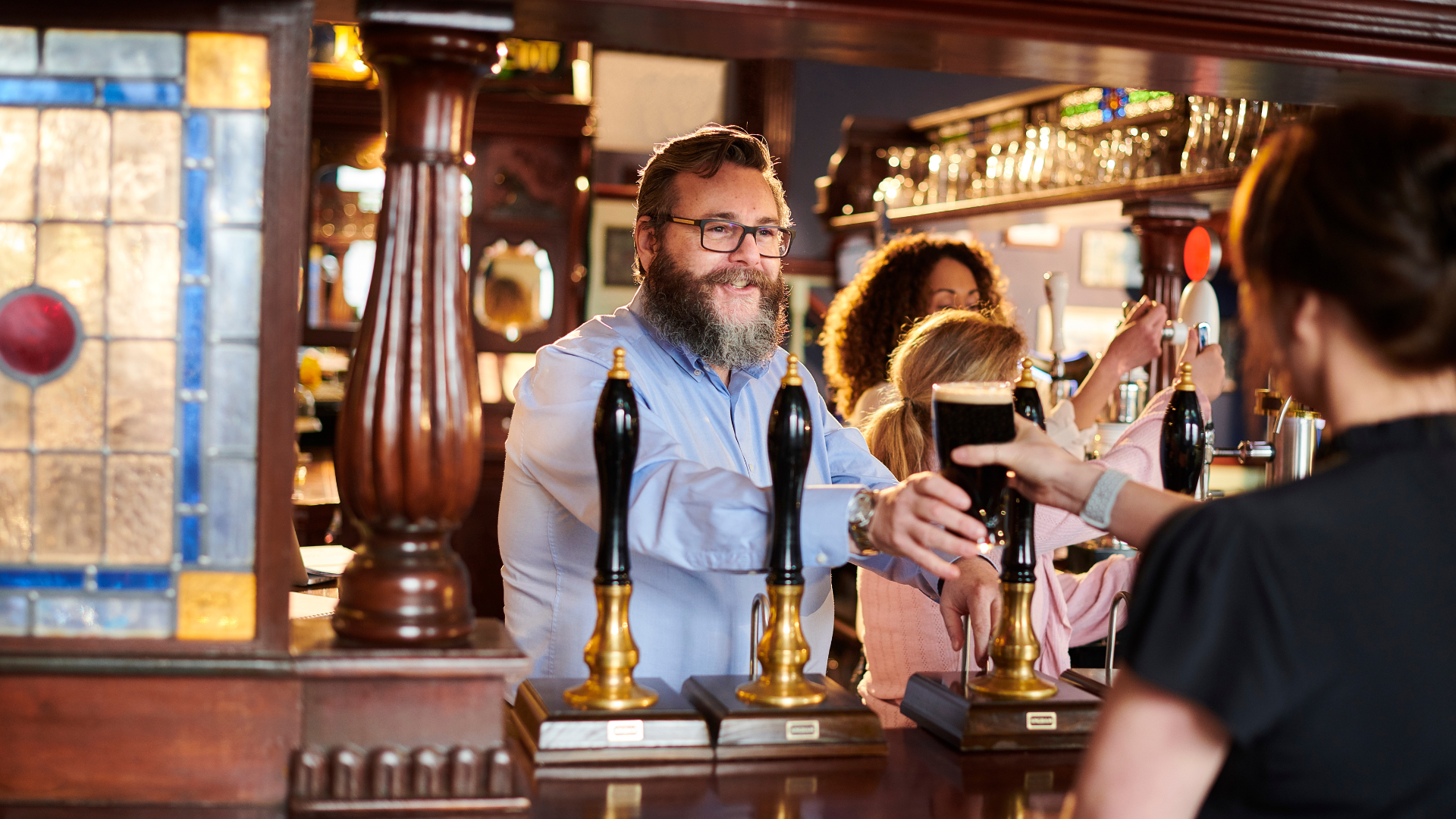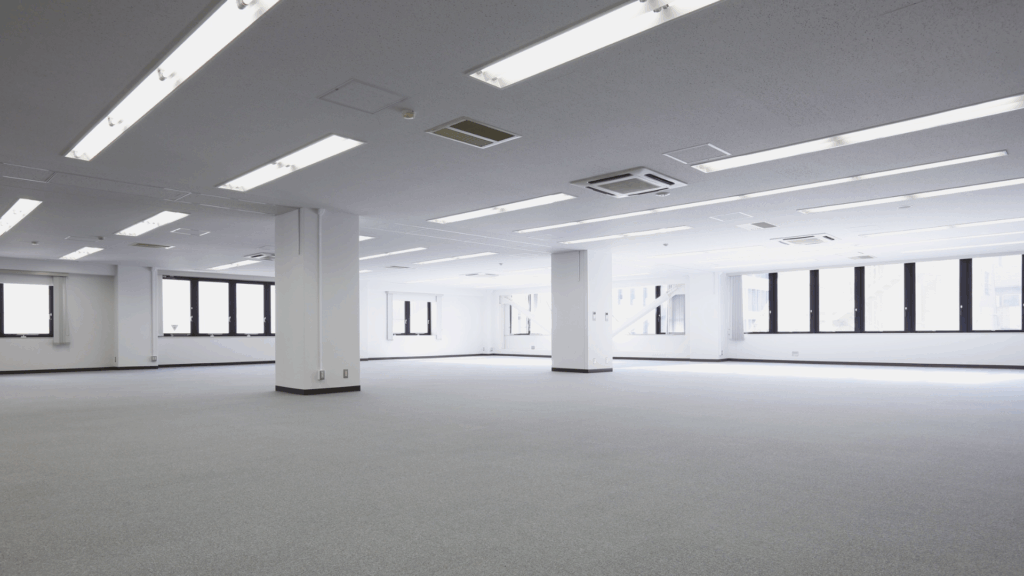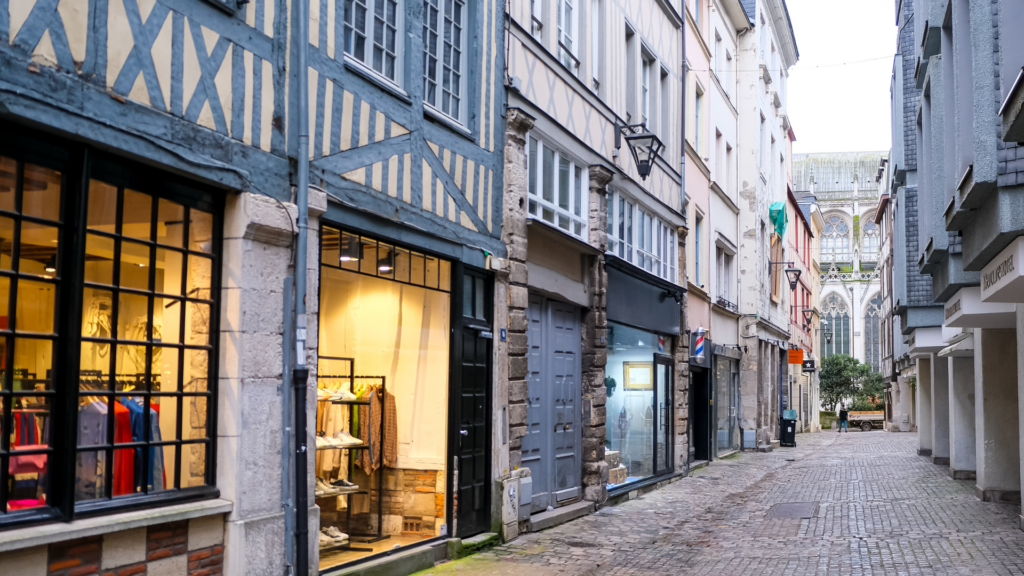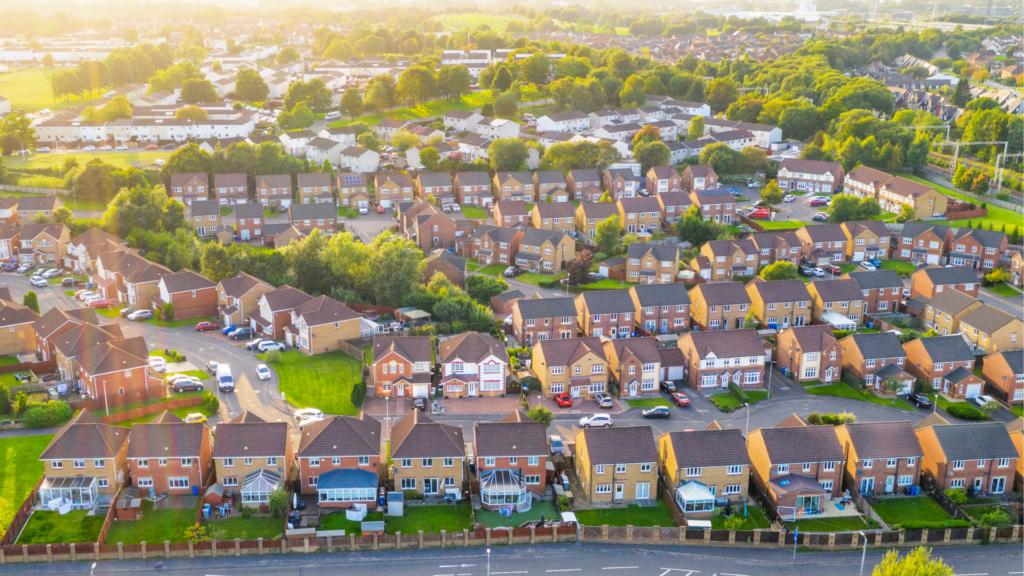- Can You Buy a Pub with a Mortgage?
- Types of Pub Ownership and Mortgages
- Eligibility Criteria for Pub Mortgages
- How Much Deposit Do You Need for a Pub Mortgage?
- Interest Rates and Repayments for Pub Mortgages
- How to Buy a Pub with a Mortgage?
- Alternative Financing Options for Pub Purchases
- Key Takeaways
- The Bottom Line
How To Buy A Pub With Commercial Mortgages? A UK Guide

Pubs are more than just places to drink. They’re the soul of British culture – a haven where locals gather to unwind, celebrate, or simply enjoy a quiet pint after a long day.
For anyone dreaming of swapping their office view for the behind-the-bar camaraderie, the idea of running a pub might sound like the perfect escape.
However, getting your hands on the keys to your own pub can be a tough nut to crack, particularly when it comes to sorting out the finances.
So, what’s the solution?
This guide cracks the code on pub mortgages in the UK. We’ll explain what lenders want, what rates to expect, and the steps to get approved. Plus, we’ll explore other funding options and give you tips to make your pub purchase a success.
Can You Buy a Pub with a Mortgage?
Yes, you can buy a pub using a commercial mortgage. This kind of loan is for business properties, not homes, so it’s quite different.
It’s worth noting not all lenders offer commercial mortgages, and those that do may have specific criteria about the types of businesses they’re willing to finance.
Talking to a specialist commercial mortgage broker can help you find out which lenders are most likely to offer you a loan based on your situation.
When you’re looking to buy a pub, you have two options: freehold or leasehold.
Which one should you pick? Here’s a comparison to guide you:
Types of Pub Ownership and Mortgages
Freehold Pub Mortgages
In freehold ownership, you own both the building and the pub business outright. This gives you complete control over your property and business.
You can buy your supplies from anyone you choose, offering flexibility to run your pub your way.
However, the flip side is the higher cost.
Buying both the property and the business means a higher price upfront, and you might need a bigger deposit.
Financing a freehold pub involves getting a commercial mortgage tailored to cover the total cost of purchasing the property and business, requiring a solid business plan and financial stability to secure.
Pros:
- Full control over the property and business.
- Freedom to choose any supplier.
- Potential for property value appreciation.
Cons:
- Higher initial purchase cost.
- A larger deposit may be required.
- More significant financial risk due to larger investment.
Leasehold Pub Mortgages
Leasehold ownership means you own the pub business, but you rent the building it’s in.
This can make getting into the pub business more accessible, with a lower initial purchase price and often a lower deposit needed.
However, there are restrictions. Your lease might dictate where you can buy your stock, typically tying you to a specific brewery, and the lease will have a set end date, usually between 10 to 25 years.
Financing a leasehold pub also requires a commercial mortgage, but the focus will be on the business’s profitability and the lease terms.
While financially easier at the start, the lease’s restrictions and end date are crucial to consider for your business’s future.
Pros:
- Lower upfront purchase cost.
- Reduced initial financial outlay.
- Flexibility with shorter commitment compared to owning property.
Cons:
- Restrictions on supplier choices due to lease terms.
- Lease duration limits business security (10 to 25 years).
- Potential for lease renewal issues or increases in rent.
Eligibility Criteria for Pub Mortgages
After choosing the right pub mortgage type, it’s time to figure out if you fit the criteria.
So, what makes a borrower a good bet? Here’s what lenders usually look at:
- A Detailed Business Plan – This is your game plan. It shows how you expect to make money, cover costs, and still have profit left over. It’s also your chance to show how you’d handle not making as much money as expected. Having clear, detailed financial projections is key.
- Industry Experience – Having 2-3 years under your belt in pub management or hospitality is a big plus. It proves you’ve got the chops. If you’re new to this, you might need to put down more money upfront or face higher interest rates.
- Having the Right Licences – You’ll need a personal licence to sell alcohol and a premises licence for the pub itself. These licences prove you’re ready to operate within legal boundaries. Extra qualifications, like the NIIA Level 2 Award, may strengthen your application.
- Financial History – Lenders will look at how the pub did financially in the past. They want to see healthy profits before they lend. This history helps them feel confident in your pub’s ability to succeed.
- Location – Where your pub matters. Lenders consider if the location will bring in enough customers. A good spot can make a big difference in how well your pub does.
- Credit History – Lenders check your credit and if you’re involved with others, theirs too. A good credit score makes you look more reliable, both personally and for the business.
- Debt – How much debt you and any business partners already have is important. Less debt means you’re more likely to get the mortgage because it suggests you can manage your money well.
- Affordability – Unlike home mortgages, which focus on your income, pub mortgages look at how the business performs. Can the pub make enough to pay back the loan? That’s what lenders want to know.
Note: Not all criteria are set in stone. Lenders often consider each case individually. This means you can negotiate, especially if you excel in certain areas but fall short in others.
The most important factor is to show you can comfortably pay the monthly payments without stretching your finances.
How Much Deposit Do You Need for a Pub Mortgage?
For a pub mortgage, you’re looking at needing a bigger deposit than for a home – usually between 30% to 45% of the purchase price.
It’s a hefty sum, but there’s a reason: pubs are a business, and lenders see them as a bit riskier.
However, if you’ve got solid experience in running pubs or a proven track record in hospitality, lenders might be more flexible. They could ask for a smaller deposit because your experience reduces their risk.
Interest Rates and Repayments for Pub Mortgages
For pub mortgages, interest rates generally start at 3% above the Bank of England’s base rate, which currently is 5.25%.
This means the lowest rate you might see is around 8.25%. Depending on how lenders view your financial stability and the specifics of your situation, rates could climb up to 12% annually.
If you want to tilt the scales in your favour, boosting your deposit size and improving your credit score can be persuasive. Both actions signal to lenders that you’re committed and reduce their perceived risk of lending to you.
To work out your monthly repayments, use the commercial mortgage calculator below. This offers you a snapshot of what you can afford each month. But, remember, this is just an estimate.
The actual amount of your mortgage can vary depending on your situation and chosen lender.
[Embedded Commercial Mortgage Calculator]
How to Buy a Pub with a Mortgage?
Before you explore mortgages, the first key thing you must do is conduct thorough market research. Visit nearby pubs, observe their strengths and weaknesses, and chat with locals about their preferences.
This insight will help you make an informed choice when pursuing this business.
Once you’ve done that, here’s how you deal with the financing:
1. Prepare Your Business Plan
This should detail your vision for the pub, including financial projections and how you plan to make it profitable.
A strong business plan demonstrates your seriousness and feasibility of success to lenders.
2. Assess Your Financial Health
Before applying, review your financial situation. This includes your credit score, existing debts, and assets.
A healthy financial standing can improve your chances of getting approved.
3. Understand the Required Licences
Ensure you have or can obtain the necessary licences, such as a personal licence to sell alcohol and a premises licence from the local council. These are essential for legally operating a pub.
4. Choose the Right Mortgage Type
Decide whether a freehold or leasehold pub is right for you.
Freehold offers more control but comes at a higher cost, while leasehold might be more affordable but with some restrictions.
5. Find a Specialist Broker
A broker experienced in commercial and pub mortgages can be invaluable.
They can advise on the best deals, navigate the application process, and increase your chances of approval.
6. Apply for the Mortgage
With your broker’s help, submit your mortgage application. This will include your business plan, financial records, and details about the pub you intend to buy.
Expect the lender to request an independent valuation of the pub to verify its worth.
7. Legal Representation
Engaging with a solicitor experienced in pub transactions ensures the legal process is smoothly handled. They can navigate the complexities of buying a pub, from contract negotiations to closing the deal.
8. Seal the Deal and Begin Trading
Once all legal and financial steps are completed, you’re ready to take over and start running your pub. This exciting phase is where your research, planning, and hard work start to pay off.
Remember, patience and thorough preparation are key. Securing a pub mortgage is a detailed process, but with the right approach, you can make your dream of owning a pub a reality.
Alternative Financing Options for Pub Purchases
Beyond mortgages, there are other ways to fund your dream pub. Let’s check out some alternatives.
Equity Release
If you already own a property, you can use its value to help buy a pub. This means taking out a loan against the equity you have in your property.
It’s a way to unlock cash that’s tied up in your home or another property you own, without having to sell it.
Commercial Bridging Loan
Need to move quickly on a pub purchase? A bridging loan can help. It’s a short-term loan meant to ‘bridge’ the gap until you secure long-term financing.
These loans come with higher interest rates, but they’re fast to arrange, giving you the funds to snap up opportunities without delay.
Development Finance
If you want to build a pub from scratch or do major renovations, you can apply for a development finance loan. This lets you get cash in instalments to cover upfront costs and building fees.
Lenders usually want to see that you’ve got experience with this kind of project, as it reassures them that you know how to manage the build.
Key Takeaways
- You can purchase a pub using a commercial mortgage, but these loans differ significantly from residential mortgages and require thorough preparation.
- Owning a pub building (freehold) gives you more control but costs more money upfront. Renting the building (leasehold) is cheaper but comes with rules you must follow.
- To get a pub mortgage, you’ll need a good plan for running the pub, some experience in the pub or hospitality business, the right licences, and a good financial record.
- Deposits for pub mortgages typically range from 30% to 45% of the purchase price, reflecting the higher risk associated with business lending.
- Alternative financing options, such as equity release, bridging loans, or development finance, can give flexibility if a traditional commercial mortgage isn’t suitable.
The Bottom Line
Buying a pub with a mortgage is a big commitment. You must have a solid business plan and know your finances inside out.
To get these things right in the first place, hire a specialist commercial mortgage broker. They can guide you through the process and find the best deals. This can save you tons of stress, time, and potentially money.
If you’re ready to take the plunge, don’t go it alone. Contact us today for a free, no-obligation consultation with a commercial mortgage broker specialising in pub mortgages.
Get Matched With Your Dream Mortgage Advisor...

Frequently asked questions
Can I buy a pub and live in it?
Yes, you can. You’d need a semi-commercial mortgage, which covers properties used both for business and as your home.
Can I get a pub mortgage with no deposit?
It’s tough, but you might use another property as collateral. Always best to talk this through with a broker who can explore all your options.
How long does the pub mortgage application process take?
It varies, but expect a few weeks to a few months. It depends on how quickly you can provide all the necessary information and how complex your situation is.
What are the ongoing costs associated with a pub mortgage?
Beyond your mortgage repayments, consider taxes, insurance, and maintenance of the pub. These costs keep your business running smoothly and legally.




